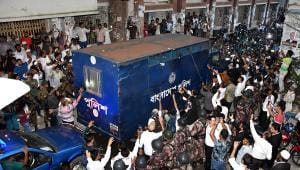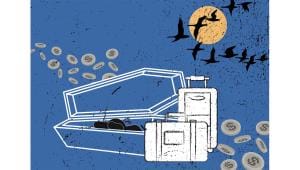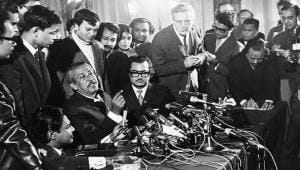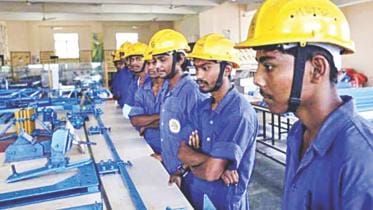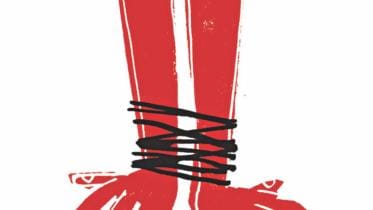Bangladesh’s criminal investigation system needs reformation
In Bangladesh, wholesale reform of the criminal investigation and justice system is necessary.
3 September 2024, 06:00 AM
The tragedy of a fallen remittance fighter
Johurul Islam of Gaibandha was a remittance fighter. He was barely 18 when he left Bangladesh to work as a construction worker in Malaysia.
21 February 2022, 18:00 PM
The alarming trend of trial by police
A young female is reported missing. The police find a dead body. The relatives identify the body. The police make an arrest and question the suspect.
4 February 2022, 18:00 PM
A capital crime may have been committed
This is what we know: It was a recorded telephone call. The caller is a male, and so is the recipient.
27 December 2021, 18:00 PM
A case for declaring Probashi Dibash in Mujib Year
In 1970, there were approximately 40,000 Bangladeshi expatriates living in Britain.
16 December 2020, 18:00 PM
Demonising of probashis has damaged Bangladesh’s efforts to contain coronavirus
On March 14, a group of probashis (expatriates), arriving from Italy, were transferred to a local facility to go through the government’s newly initiated coronavirus screening procedures.
12 April 2020, 18:00 PM
Why citizens must speak out against injustice
The first amendment to the United States Constitution declares that government shall make no laws “abridging the freedom of speech”.
13 March 2020, 18:00 PM
Every Life Matters
No man is above the law and no man is below it: nor do we ask any man’s permission when we ask him to obey it.” — Theodore Roosevelt
15 November 2019, 18:00 PM
A tale of two women
IT was an evening in May 1989. Kiranjit Ahluwalia, an Indian woman living in a small town in England, served her husband his dinner.
11 April 2019, 18:00 PM
Tap into resources abroad to develop human capital at home
Three years ago, the then president of Uruguay, José Mujica, travelled to Berlin to meet Chancellor Merkel. She had already been in office for 10 years and was well accustomed to receiving Third World leaders seeking monetary assistance to contribute to the development of their countries. If she thought she was about to meet another such leader, she was in for a surprise.
23 April 2018, 18:00 PM
Human rights and detention of the mentally ill
The International Bill of Human Rights together with the CRPD provides a comprehensive charter, among other things, to be adopted by a ratifying state for a modern and non-discriminatory mental health system.
18 April 2017, 18:00 PM
Bangladeshi expatriates' voting rights – and wrongs
The right to vote is a funda-mental right of citizenship, and this right is not affected by where a citizen chooses to live,” said Jean-Pierre Kings...
29 March 2017, 18:00 PM
Review proposed citizenship law
On February 1, 2016, the Cabinet of Bangladesh government approved its draft Citizenship Bill 2016, paving the way for it to go through the Parliamentary procedure at a suitable time. That procedure is yet to be initiated.
7 January 2017, 18:00 PM
